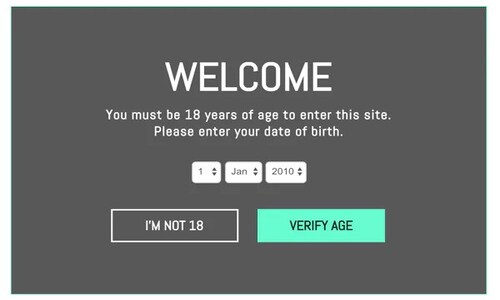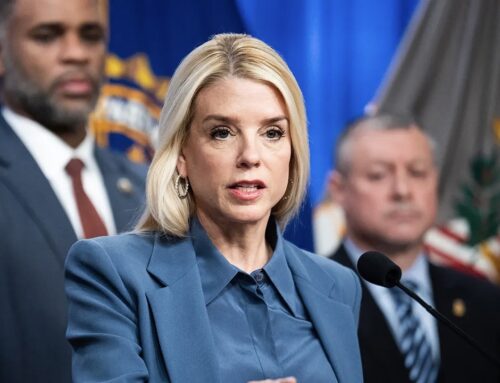The Trojan Horse Of Age Verification: From Safety To Surveillance & Control
November 04, 2025
By PNW Staff
Reprinted from Prophecy News Watch
The idea sounds innocent enough–protect children online. Who could possibly argue with that? Age verification tools, after all, promise to keep kids from stumbling across explicit or violent content. And on the surface, that’s something every Christian parent can agree with. Our children deserve protection from a culture that too often normalizes filth, confusion, and corruption.
But as with so many things the government touches, the story doesn’t end with good intentions. History teaches us that every time a new control mechanism is introduced for “safety,” it’s only a matter of time before it’s repurposed for control. Once the gate is built, those in power can–and will–decide who gets to walk through it.
The Good That Masks the Danger
Age verification sounds moral and wise. It promises to block pornography, violent imagery, and harmful influences from young eyes. Parents breathe easier, lawmakers look virtuous, and technology companies earn praise for their “responsibility.”
And for a brief moment, it works. Fewer children are exposed to adult content. The measure seems effective. But beneath the surface, a more dangerous reality is taking root.
When governments and corporations begin tying online access to verified identity–driver’s licenses, passports, even facial scans–the internet ceases to be a place of freedom. It becomes a database of monitored activity, where every search, post, and video watched can be linked to a verified human name.
That’s not parental guidance. That’s a digital leash.
The Pattern We’ve Seen Before
Throughout history, nations have often used crises–whether of morality, safety, or security–to justify surveillance and control. It’s rarely done in one giant leap. It happens gradually, step by step, with noble-sounding explanations along the way.
“We must protect children.” So governments introduce age checks.
“We must prevent dangerous misinformation.” Suddenly, political or religious opinions are restricted.
“We must ensure social harmony.” Now, unpopular beliefs are branded as “anti-social” or “extremist.”
By then, it’s too late to object–because every citizen’s identity is already wired into the system.
This isn’t science fiction. We’ve already seen how easily large institutions cooperate with government pressure to silence Christians and conservatives. Entire YouTube ministries have vanished. Facebook pages have been throttled without explanation. Search results for pro-life or faith-based content have disappeared overnight–something officials later admitted was done under government influence.
Now imagine that same power tied to your verified identity–your digital ID, your phone, your account. Imagine being told you cannot even access certain platforms unless you verify who you are.
Suddenly, your beliefs aren’t just unpopular. They’re restricted content.
Three Realistic Ways This Could Expand
1. Faith labeled as “harmful” content
A Christian website publishes articles about biblical marriage or the sanctity of life. The state, or even a corporate partner, deems those views “anti-social” or “divisive.” Because you must verify your age and identity to access adult or “sensitive” material, the system quietly blocks you–or logs your visit for later “review.”
2. Political dissent redefined as “misinformation”
A conservative pastor criticizes corruption or immoral policies. Algorithms flag the message as “false information.” With identity-linked access, those viewing or sharing it could find their accounts restricted–or worse, their names on a list.
3. Religious gatherings monitored online
Virtual church services, prayer groups, or Bible studies could one day require verified accounts for “safety compliance.” The same structure built to protect children would now track who attends, what’s said, and who leads.
This isn’t far-fetched–it’s the logical extension of a system that no longer allows anonymous access. The line between “age verification” and “identity verification” is paper-thin, and once crossed, it can never be uncrossed.
The Hidden Step Already Underway
Even major tech platforms are preparing for this shift. Next year, the Google Play Store will begin requiring age verification data for apps in several U.S. states. On the surface, it’s about complying with new child protection laws. But underneath, it’s part of a slow but steady drift toward a fully verified internet–where every user, app, and transaction is tied to a digital identity signal.
At first, it’s “for the children.” Then, it’s “for safety.” Soon, it’s “for accountability.” And one day, it becomes “mandatory for access.”
Every step seems reasonable when viewed in isolation. But together, they build a world where privacy and freedom are relics of the past–a world where your faith, opinions, and associations can all be tracked.
Why Christians Must Care
Christians have already been on the receiving end of digital persecution. We’ve seen what happens when truth is deemed dangerous and morality is labeled hate. We’ve learned that the same tools designed for “safety” can easily become instruments of suppression.
Age verification may begin as a noble defense for children, but it can quickly evolve into a Trojan horse for censorship and control. Once governments or corporations can decide who is “allowed” to speak–and can verify who listens–the free exchange of ideas, faith, and truth dies.
The call for our generation is not to reject technology, but to guard freedom within it. We can support protecting children without surrendering our digital liberty. We can build guardrails without building prisons.
As Christians, we should always be the first to defend innocence–and the first to discern deception. The same gate that keeps out the wolves can also keep the sheep penned in.
So let us pray for wisdom. Let us support policies that protect children but resist systems that enslave citizens. The future of free thought and faith online depends on it.
Because once every click is monitored, every word is tagged, and every belief is verified–freedom will no longer be something we enjoy. It will be something we remember.







Leave A Comment
You must be logged in to post a comment.